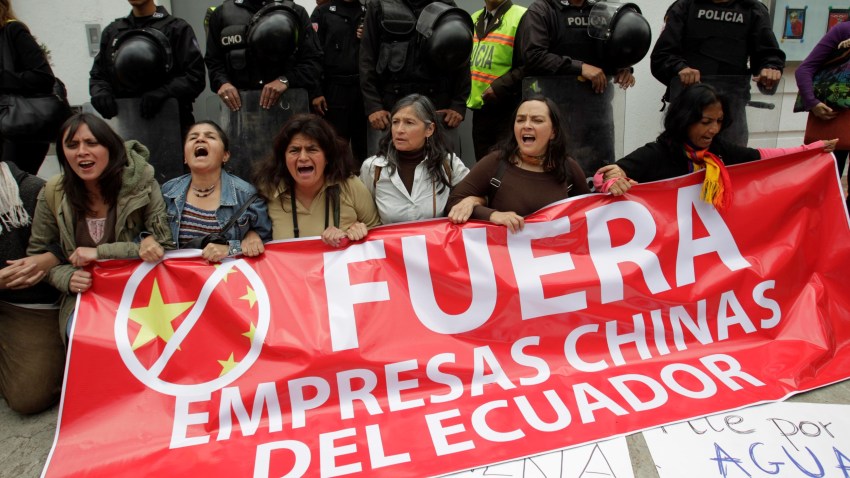The Ecuador-China Free Trade Agreement has often been portrayed as a milestone for China in Latin America, particularly amid perceptions of diminishing U.S. influence in the region. When the agreement was signed by former President Guillermo Lasso’s administration in May 2023, it was heralded as cementing China’s robust presence in the Western Hemisphere, while also putting Ecuador “on Asia’s map.” The agreement grants preferential access to 99 percent of Ecuador’s current exports to China, including shrimp and agricultural products such as bananas and dragonfruit. In return, approximately 4,600 types of Chinese products, including seeds, medications and electronics, will be able to enter Ecuador tariff-free. However, recent developments have thrown the fate of the FTA into doubt.
Before it can enter into effect, the deal must first be ratified by Ecuador’s National Assembly, the nation’s legislative body. This process was substantially delayed when Lasso dissolved the assembly and called snap elections mere days after the FTA with China was signed. Earlier this month, when the agreement was finally introduced into the new legislative session for debate, it encountered unanticipated levels of resistance. For over four hours during the debate on Jan. 11, hostile legislators across disparate political parties denounced the FTA as undemocratic and a threat to Ecuador’s environment, its small and medium enterprises, and even its sovereignty. As it became clear that ratification of the agreement was not guaranteed, the debate was suspended indefinitely.
The uncertainty surrounding the future of the FTA has implications that extend beyond Ecuador’s borders, affecting the broader landscape of China’s relations across Latin America. The domestic debate in Ecuador reflects the burgeoning anti-China sentiment within Latin American countries, challenging the narrative of China’s uncontested ascent in the region. Moreover, the real possibility that the FTA will be rejected underscores the agency of Latin American actors in navigating their relationships with China against the backdrop of great power competition between Beijing and Washington. Rather than passively accepting China’s terms, resistance from a range of stakeholders in Ecuador points to the willingness of Latin American actors to assert their interests. This dynamic reflects the pivotal importance of domestic politics in shaping the terms of engagement with China.

